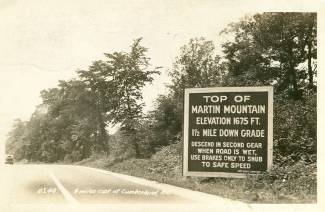Collection Name
About
Luther Martin, 1748 - 1826
Luther Martin is considered one of America's Founding Fathers. He served as Maryland's Attorney General, as well as in the Maryland House of Delegates. Most significantly, Martin was also a Maryland Delegate to the 1787 Constitutional Convention in Philadelphia at which time the United States Constitution was adopted. Although a supporter of American independence and an active participant at the Convention, he refused to sign the document. Martin felt that the proposed Constitution gave the federal government too much power over the states.
Although he owned six slaves of his own, he also thought it would be unfair and strongly opposed including slaves in determining a state's population, and thereby that state's representation in Congress (this was the "Three-fifths Compromise" which counted slaves as three-fifths of a person and gave the South increased representation in the Congress).
Luther Martin characterizes many of the moral contradictions of our Founding Fathers regarding slavery, many of whom were themselves slave-owners. In an August 21, 1787 debate with South Carolina over a proposal for Federal control over the Atlantic slave trade, Luther Martin stated that he felt the slave trade contrary to the country's "republican ideals", and that, "It is inconsistent with the principles of the Revolution...and dishonorable to the American character to have such a feature in the constitution."
Luther Martin further stated, "That slavery is inconsistent with the genius of republicanism, and has a tendency to destroy those principles on which it is supported, as it lessens the sense of equal rights of mankind, and habituates us to tyranny and oppression". He eloquently wrote, "At this time we do not generally hold this commerce (slave trade) in so great an abhorrence...when our liberties were at stake, we warmly felt for the common rights of men - the danger being thought to be past which threatened ourselves, we are daily growing more insensitive to those rights."
Elsewhere he states that the continuation of the slave trade and its sanction by the nation would "justly expose us to the displeasure and vengeance of Him, who is equal Lord of all, and who views with equal eye, the poor African slave and his American Master!"
In 1783 Luther Martin married into the family of Michael Cresap, through Michael's daughter, Maria. Though he lived in Baltimore he had inherited land from his father-in-law in Allegany County and was an executor of Michael Cresap's estate. Martins Mountain, which is identified on maps as far back as 1838, is named after Luther and his brother, Lenox Martin. Lenox also married a daughter of Michael Cresap and settled in Allegany County.
In his final years Luther Martin turned to drink, suffered from paralysis, and poverty. He died at the home of Aaron Burr in New York City and was buried in an unmarked grave in one of the city's churchyards.
Text: The National Archives, Records Administration: “The Founding Fathers”; "Mountain Names in Western Maryland" by Mary Meehan, Journal of the Alleghenies, Volume XXXXI-2005; The Founders' Constitution, Article 1 and The Founders' Constitution, Chapter 15, The University of Chicago Press, 1987
Postcard photograph of Martins Mountain from the collection of Albert and Angela Feldstein
